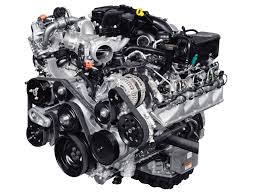Diesel has become almost a dirty word in motoring circles lately, with very serious concerns being raised over the effects of diesel exhaust fumes on inner-city air quality. If the data coming from the European Environment Agency is to be believed, then air pollution is the main cause of environmental-related diseases and deaths across the continent. So while we worry about the dangers of nuclear energy or polluted waterways, it’s actually the air that’s killing us and it’s particulate matter (small airborne particles of dust and soot) and ground-level ozone that are the most potentially damaging. Guess what happens to be a major source of both? Yup…
This has caused a serious crisis at senior policy-making level across Europe and indeed the Mayor of Paris, Anne Hidalgo, has given an undertaking that the city centre of France’s capital will be diesel free by 2020. That’s off the back of a serious bout of air pollution and smog which bedevilled the city in the summer of 2014, and diesel cars (especially older models for now, but with an escalating scale of restriction as we get closer to 2020) are being particularly targeted. Starting now, diesel access to the centre of Paris will be restricted and the French government is preparing a series of financial incentives to try and push drivers towards electric cars.
The diesel alternative
Berlin has already begun work on a similar plan and London has had some discussion along those lines. Diesel is under fire and it is the beginning of a series of restrictions which could have a fundamental effect on the cars we buy and the values they retain.
Almost like flicking a light switch, once the Co2-based Vehicle Registration Tax and motor tax system was introduced in 2008, Ireland turned from being a market in which around 80% of cars sold came with petrol engines to almost the total opposite. As of right now, 73 per cent of cars bought are powered by diesel.
What happens if those cars start to get banned from city centres? Dublin, Cork, Galway, Limerick and Belfast could all impose similar plans as Paris, and in fact are quite likely to as we are not immune here from pollution problems of Europe.
Impact on diesel cars
If a ban were to be introduced tomorrow, diesel car secondhand values would plummet – much as petrol car values did after 2008. If that were to happen then there would be major implications for the car industry here and for individual consumers – PCP and credit agreements would be affected, especially those based on a guaranteed future minimum value and the cost of trading up to a new car would be vastly increased for many of us.
So, does that mean we should abandon our diesel cars now and be done with it? No, of course not – any plans to restrict city centre access for diesel models will have to be made and laid well in advance and thus far, the Irish Government has made nary a peep in this direction. The trick for now is to be careful what we buy – there are still far too many of us buying and running a diesel-engined car when we simply don’t need to.
Anyone driving less than around 15,000km a year quite simply shouldn’t be driving a diesel. At that mileage level, you will simply never make back the extra money you had to spend on buying the diesel model in the first place – diesel engines are expensive to design and build and they usually command a premium of around €1,500 to €2,000. Thats a big gap to claw back just by using less fuel, and that’s where the mileage comes into it.
Diesel or not?
 So, if you’re a low-mileage user, or you drive mostly in town, forget diesel. Stick with petrol, and the good news is that car makers have been beavering away on creating a new family of petrol engines, usually turbocharged, that can come close to matching their oil-burning counterparts in terms of economy and emissions. Certainly, the days of having to pay a massive extra motor tax penalty just for buying a petrol have passed.
So, if you’re a low-mileage user, or you drive mostly in town, forget diesel. Stick with petrol, and the good news is that car makers have been beavering away on creating a new family of petrol engines, usually turbocharged, that can come close to matching their oil-burning counterparts in terms of economy and emissions. Certainly, the days of having to pay a massive extra motor tax penalty just for buying a petrol have passed.
As for diesel users, don’t panic, at least not yet. If you’re covering lots of miles every year, then stick with what you’ve got – it’s the most efficient way. Those driving a more recent diesel model, especially one which passes the current EuroVI emissions regulations, can at least have a clear conscience – these engines have far smaller emissions of particulates or dangerous nitrous oxides than older units.
Nonetheless, it would be prudent to plan ahead. If you’re going to be changing your car in the next couple of years, sit down and do your sums carefully. Work out your average mileage and your number of city-centre journeys. And keep an eye on the headlines – diesel’s under fire and will probably remain so for a while.